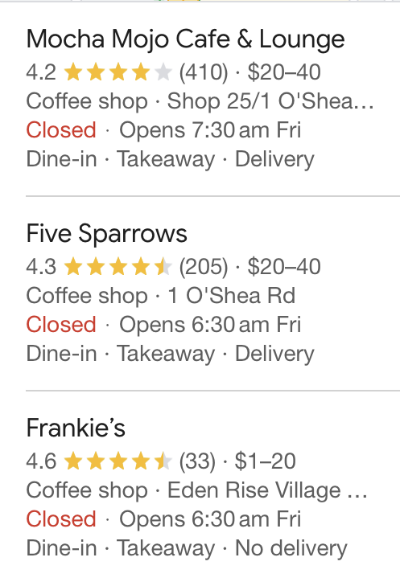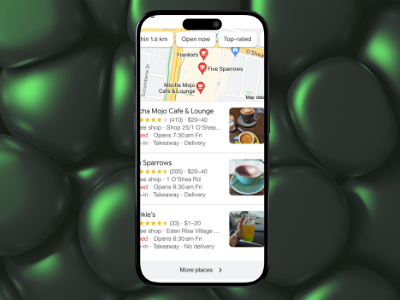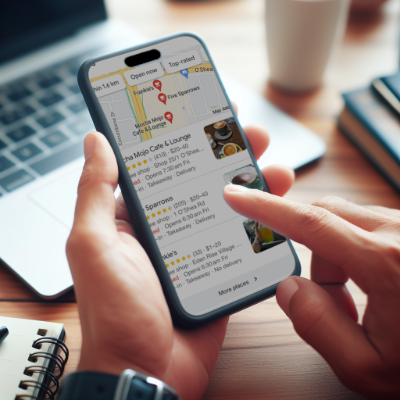Search Query
User types in "best coffee shops near me" into a search engine.

Local search engine optimisation (SEO) is the practice of improving your website's visibility in local search results. By focusing on local SEO, you can attract more targeted traffic and generate leads and sales from your local area.
On-page optimisation plays a crucial role in local SEO. By optimising individual web pages, you can increase their visibility in local search
results and attract more qualified traffic. Some key on-page optimisation techniques include:
Keyword research is essential for local SEO. By understanding the terms and phrases your target audience uses when searching for local
information, you can optimise your website accordingly. Use tools like Google AdWords Keyword Planner, Ahrefs, or SEMrush to identify relevant
keywords and their search volumes. Incorporate these keywords naturally into your website's content, title tags, and meta descriptions.
Building high-quality links is crucial for local SEO success. Here are some effective link-building tactics:
Small businesses can greatly benefit from local SEO. By optimising your website for local search queries, you can make it easier for local
customers to find your business online. Some key tactics for local SEO include:
User types in "best coffee shops near me" into a search engine.

The search engine uses the user's location data to identify their current location.

The search engine returns a list of coffee shops in proximity to the user's location.

A map may be displayed, showing the user the exact locations of the coffee shops.

Each coffee shop listing includes key details like name, address, phone number, website, and possibly customer reviews.

The results are mobile-friendly, considering that many local searches happen on mobile devices.

The coffee shops that appear at the top of the results have likely optimised their online presence for local search through techniques like Google My Business setup, local citations, and positive customer reviews.

The user can click on a coffee shop's listing to get more information, such as operating hours, menu, and directions.

Positive reviews and high ratings may influence the user's decision on which coffee shop to visit.

The above example demonstrates how local search works, providing users with relevant and geographically targeted results based on their specific location.
Use our tool to see how you rank in a local search
Example: car body repairs near me
Google Analytics is a powerful tool for tracking and analysing your website's performance. By understanding and using Google Analytics, you
can gain valuable insights into your website's visitors, their activity, and the effectiveness of your marketing efforts.
Social media also plays a significant role in local SEO. By developing and managing social media profiles for your business and regularly producing engaging content, you can improve your website's visibility and encourage social sharing.
With the increasing use of mobile devices, mobile optimisation is crucial for local SEO. Ensure that your website is mobile-friendly and
easy to use on smartphones and tablets. A responsive design that adjusts to different screen sizes and fast page loading times are essential for
a positive mobile user experience.
For seasoned marketers, there are advanced SEO strategies that can further boost your website's search engine rankings and traffic. Some of
these strategies include:
When it comes to SEO, it's important to avoid common mistakes that can negatively impact your website's rankings. Some blunders to avoid
include: